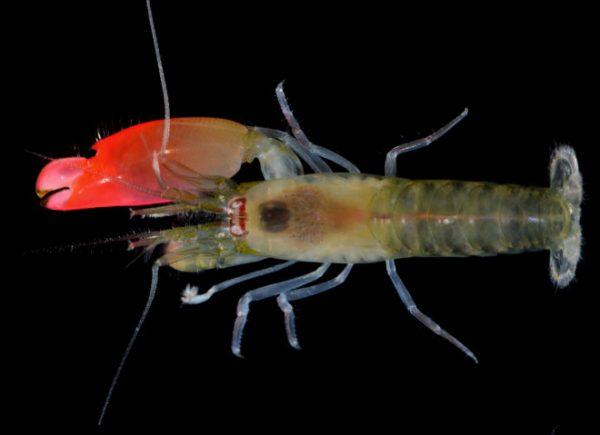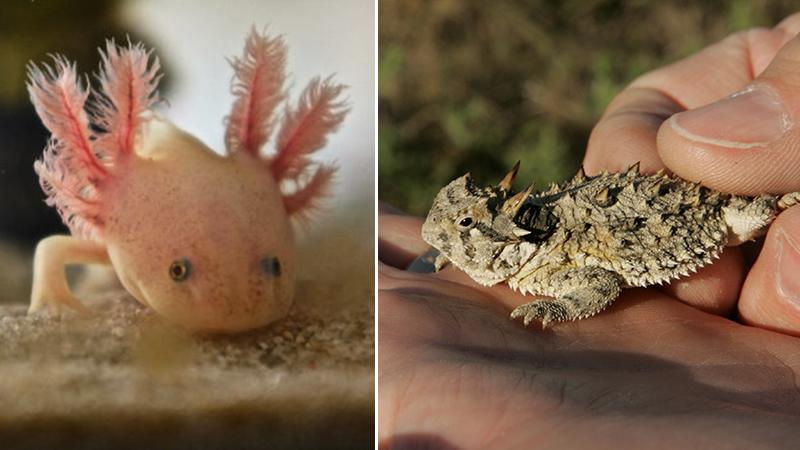All aboard the discovery train for a celebration of our world’s rich diversity and its incredible creatures that your imagination couldn’t come up with on its own even if you tried.
1. Pistol Shrimp (Alpheidae family of caridean snapping shrimp, 1000+ species)
It hunts for small fish by snapping shut its more massive claw so quickly that it fires off a bubble at over 60 mph (100 kph), reaching a scorching temperature rivaling the surface of the Sun (8500°F/7400°C), and generating a deafening 218 decibels!
©Wikimedia | Arthur Anker





